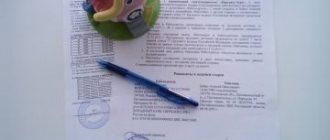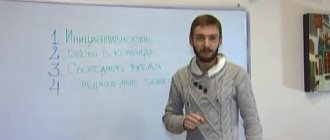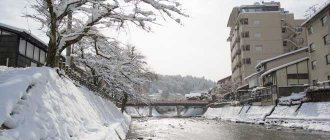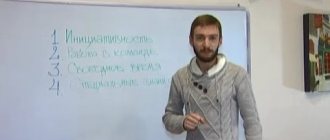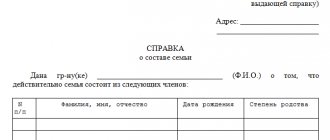Therefore, when choosing a management organization, residents and legal owners of premises want to trust a person who can in every possible way maintain the house and common area in proper condition , as well as improve the situation.
But often this becomes impossible due to the wrong choice of the top management.
Each organization is headed by people who, in one way or another, monitor the condition of the building, give orders and primarily decide what is best to spend budget funds on, what kind of work to carry out, and so on.
Unfortunately, there are not always people at the head of management organizations who are ready to fulfill their duties conscientiously .
Often, many people come to work in the housing sector with one banal goal - to profit from gullible owners and try to penetrate the structure of their budget.
In order to prevent such incidents and unpleasant situations from happening to you, you need to know what functions should fall on the shoulders of the board of the homeowners association, how they should perform their functions, and also what is within their scope of competence.
The rights and obligations of HOAs according to the housing code - we will deal with these important and pressing issues in this article.
Read our article about the pros and cons of HOAs.
Who are the governing bodies of the homeowners association?
In accordance with Article 144 of the Housing Code of the Russian Federation, the governing bodies of the HOA are:
- meeting of members of the partnership;
- board of the organization.
The election of the chairman of the board and other candidates to the management apparatus is carried out by members of the meeting by voting.
The composition of the board depends on the general meeting. Members of the partnership may decide on its re-election or abolition.
Elections
The management staff is elected at a general meeting of HOA members . The decision is made by a majority vote. Each candidate is considered separately. If more than half of those present voted for a particular person, then he is appointed to the board.
The adopted decision is documented in the minutes of the general meeting. It is signed by all those who voted in favor, as well as those elected members. The Board is elected for a period determined by the HOA Charter. It cannot exceed two years.
Membership on the board is voluntary. You cannot force a person. That is, any candidate can refuse.
Compound
The number of members of the board is determined at the general meeting . In most cases it is five people. They elect a chairman from among themselves (how is the chairman’s salary determined?) by voting. The candidate for whom the majority voted is appointed. The body includes homeowners.
A member of the board of the partnership cannot be a person with whom the HOA has entered into an agreement for the management of apartment buildings, or a person holding a position in the management bodies of the organization with which such an agreement was signed, as well as a member of the audit commission (auditor) of the partnership.
A member of the board cannot combine his activities on the board with work in the partnership under an employment contract, or entrust or entrust another person with the performance of his duties. This rule is specified in paragraph 3.1 of Article 147 of the RF Housing Code.
Organizational and legal form
A partnership, as follows from the definition given in the legislation, has the form of a legal entity . But why exactly this? This organization is undermining the tax authorities.
In addition, the HOA has its own budget and has the opportunity to hire workers to perform any work, both on an ongoing and one-time basis.
All these signs rightfully belong to the characteristics of a legal entity, which means that a partnership is rightfully such.
You can learn about the concept of a reserve fund, as well as membership and other fees to the HOA, from our article.
Responsibilities
The main responsibilities of the management body of a homeowners' association include those listed in Article 148 of the Housing Code of the Russian Federation. The management apparatus is obliged:
- control the payment of established contributions by members of the partnership;
- draw up reporting and estimate documentation;
- report to the owners on the financial activities of the organization;
- manage MKD;
- enter into contracts for maintenance and repair of home ownership;
- hire and fire workers for the HOA staff;
- enter into agreements with new members joining the partnership;
- maintain accounting and accounting documentation (is an accountant needed in an HOA, what are his responsibilities, how to hire and fire him, read here);
- convene meetings and put current issues on the agenda.
This list is not exhaustive. The HOA charter may provide for other responsibilities of the board.
Manager at HOA
The manager may be a citizen who was hired to perform management and administrative functions for the maintenance and repair of common property in the apartment building. The manager does not have to own property in the apartment building and be on the board of the HOA. A legal entity can also become a manager in an HOA.
The manager takes office by mutual agreement of the parties; a civil law or employment contract can be concluded with him. In an HOA, the decision to hire a manager is most often made by the board or chairman.
Rights
The rights of board members include:
- organization of HOA activities;
- control over the timely provision of housing and communal services and their payment;
- organization of landscaping works;
- monitoring the condition of technical premises, equipment and mechanisms;
- administrative office work, control over the activities of the chief accountant;
- obtaining information necessary to exercise rights.
The list of rights must be reflected in the HOA Charter.
Attention: violation!
The next problem that often occurs in apartment buildings is the posting of a list of debtors by the HOA board for public viewing. In this case, the residents’ indignation is completely justified and natural. According to the law (we are talking about personal data), it is prohibited to directly disclose such information. The board does not have the right to publish any data about residents without their written consent. This applies not only to addresses, full name. and passport data of residents, but also to the amount of existing debt.
Such lists can be compiled by the board for internal use and for taking measures to influence debtors. They should be stored indoors in a safe. In the case of such illegal publication, the debtor has the full right to apply to the court for compensation for moral damage. The maximum possible action for the HOA in this case is to post a notice about the accumulated general utility debt and warn about the upcoming appeal to the court.
Members meeting
A board meeting consists of the following stages:
- Setting a date and location.
- Discussion of issues.
- Making decisions.
- Drawing up the protocol.
- Notification of responsible executors and homeowners.
Rules for the meeting
The board meeting is called by the chairman. Specific deadlines are stipulated in the Charter (clause 5 of Article 147 of the RF Housing Code). As a rule, the meeting takes place at a certain frequency. This could be a month, a quarter, a half-year or a year.
The Charter may indicate the date, time and place of the meeting. In any case, members must be properly informed. In addition, they must be made aware of the issues that are being discussed.
On the appointed day, all members must attend the meeting. It will be legitimate only if at least half of the total number of members were present.
At the beginning of the meeting, the chairman checks the number of people present and announces the items on the agenda. After this, each issue is discussed separately. All those present have the right to express their opinions and make suggestions.
A protocol of a meeting
The minutes of a board meeting are a documentation of the decisions made. Such a document should be drawn up based on the results of the meeting. Its registration is entrusted to the secretary, who is appointed from among the members.
The text of the protocol must contain the following information:
- Date and place of the meeting.
- Information about the members present - last name, first name, patronymic.
- List of issues submitted for discussion.
- The process of discussion itself. It is necessary to indicate the statements and proposals of each speaker.
- How many voted “for”, “against”, “abstained”.
- Signatures of the chairman and secretary.
The protocol is drawn up on a regular A4 sheet. If necessary, copies or extracts from it can be prepared.
We do not recommend completing the documents yourself. Save time - contact our lawyers by phone:
8 (800) 302-76-94
Making decisions
At a board meeting, decisions are made by a majority vote of the total number of people present, for example, fifty percent plus one vote. That is, the basis for making a decision is the total number of people who voted “for”. The results of the meeting are reflected in the minutes.
conclusions
It is clear from this that the entire list of powers of the HOA board is determined by its direct functions arising from the main purpose of the partnership - the maintenance of an apartment building.
In addition to the above, the powers of the HOA may include a number of additional ones, which must certainly be recorded in the Charter of the partnership. We can talk about the arrangement of the local area, independent maintenance of the building, collection of rent from persons who are tenants of commercial and residential premises of the house, as well as the disposal of common property, which includes basements, elevators, etc.
The Housing Code confirms that both the rights and obligations of the HOA are inextricably linked with their functions and arise from the task of maintaining an apartment building and all related property in perfect order.
Report on work for the past year
The board is obliged to report to the owners on the work done. Such information is communicated to homeowners annually at a general meeting. The report includes information about how much money was spent and for what needs.
The board reports on the costs of improvement, repair and replacement of engineering equipment. In addition, the owners must be provided with information about the funds received into the partnership account, for example, from the rental of common property, as well as existing debts and cash balances.
We do not recommend completing the documents yourself. Save time - contact our lawyers by phone:
8 (800) 302-76-94
What other powers exist?
If this does not affect the rights and freedoms of apartment owners provided for by law, the partnership has the right to:
- leasing of premises (about what non-residential premises of an HOA are and about its use, concluding a lease agreement and other nuances, read here);
- superstructure or reconstruction of structures;
- setting the amount of contributions;
- concluding transactions in the interests of the organization;
- obtaining a share in real estate;
- carry out development of the adjacent territory in the interests of the organization, if this does not contradict the law.
If the resident debtors do not eliminate the violations committed, do not repay the debt, that is, they do not understand what is called “good”, the HOA may initiate legal proceedings against them. Also, through the court, it can demand full compensation for losses, if any, from users of the premises.
Reward
Payment for the activities of the board is established by a decision of the general meeting of the HOA. This rule is specified in paragraph 11 of part 2 of article 145 of the RF Housing Code. Payment of remuneration is made on the basis of a concluded agreement, in compliance with the rules of the HOA Charter. The amount is determined at the general meeting.
The HOA will have to pay personal income tax on the remuneration. For example, the monthly remuneration is set at 5,000 rubles. The total amount will be calculated as follows: 5,000 – 13% (personal income tax) = 4,350 (remuneration amount).
Lineup change
The grounds for changing the composition of the board may be:
- the own desire of its members;
- health condition that prevents the performance of duties;
- evasion of duties;
- ignoring appeals from homeowners;
- spending general funds for other purposes;
- extortion;
- violation of the requirements of current legislation;
- appropriation of common property;
- receiving a bribe;
- illegal actions with funds.
These facts must be documented. After this, a general meeting must be held. The initiators must notify all owners ten days before the planned date of the meeting.
You can send a notice to everyone, or post the relevant information in a publicly accessible place. At the meeting, all evidence presented is discussed and a decision is made. It is documented in a protocol. At least half of all HOA members must be present at the meeting.
The decision is made by a majority vote . The minutes must indicate the date from which the current composition of the board resigns.
Not only the owners, but also the housing inspectorate or the tax authority can initiate the procedure.
Homeowners association without a governing body
Article 144 of the Housing Code of the Russian Federation states that the governing bodies of the HOA include the general meeting and the board. Members of the partnership have the right to choose any of the above options. Elections of the board are not mandatory. That is, the law allows self-government of HOAs. In this case, homeowners will have to choose a management company that will deal with all issues related to the maintenance of common property.
Self management
Self-government is a form of governance in which classical government is not elected. In this case, the owner of each residential premises will have to independently enter into agreements to pay for housing and communal services. This will allow you to pay funds directly, without intermediaries. The absence of the latter will allow you to avoid deliberately inflating prices.
Each owner pays only his own expenses and is not responsible for the debt of residents of other premises. The disadvantages of self-government include:
- Obtaining the consent of all residents when resolving general issues. For example, if residents decide to install intercoms, and several people refuse to participate in fundraising, then they will have to use the amount that the rest donated.
- Selecting a responsible executor. It will be necessary to find a person who agrees to maintain the necessary documents. The amount of work is quite large and with self-government it is not paid. Therefore, it will be difficult to find someone willing.
- Lack of funding. With self-government, residents will not be able to count on municipal support and will have to pay for all repairs and improvement work themselves.
You will find complete information about the structure of the HOA, as well as who the manager is and what the emergency dispatch service is and the new requirements for it, on our website.
The HOA board is the governing body of the partnership. Its presence is more beneficial for homeowners than its absence. The board decides a lot of important issues for the HOA. If its members fail to fulfill their responsibilities, then by decision of the general meeting the composition of the body can be changed at any time.
The board is the executive body of the HOA
In order for the house to be managed professionally by the owners of the premises, it is necessary to approach the selection of board members at a general meeting not formally, but to clearly understand their role in managing the apartment building. To do this, it is necessary to develop and approve at the general meeting the Regulations on the HOA Board. This will help to use human resources more competently. Select active and proactive people for the HOA board, preferably specialists who are familiar with the rules of operation and maintenance of buildings.
The board of the partnership has the right to make decisions on all issues of the partnership’s activities, with the exception of issues falling within the exclusive competence of the general meeting of owners of the premises of an apartment building, members of the partnership (Clause 1, Article 147 of the Housing Code of the Russian Federation)
The board is the executive body of the association, reporting to the general meeting of members of the homeowners association. The board of the homeowners association is elected from among the members of the association at a general meeting of HOA members. The number of board members is established by the general meeting of HOA members. If the number of members of the partnership is small (for example, up to twenty owners), then the Board may not be elected; its function will be performed by the General Meeting of the partnership. It also elects the Chairman of the board of the partnership.
Members of the partnership delegate to the Board their right to develop a policy for the management and maintenance of property in common ownership, leaving the general meeting with the right to decide strategic issues of the partnership's activities. The board of the partnership assumes the burden of the day-to-day work of managing the HOA. It conducts the daily operational work of the partnership, manages its property and funds. Members of the Management Board are obliged to act in the interests of the majority of owners and are responsible to them for their actions and decisions.
The timing and procedure for convening meetings of the HOA board must be determined in the Charter of the partnership. The authority to convene the board is vested in its chairman.
Clause 6 of Article 145 of the Housing Code of the Russian Federation established a quorum for recognizing the meeting of the board as competent. This quorum constitutes more than half of the board members.
Members of the HOA board are elected for a term of two years. Candidates for election to the board may be proposed by any owner or member of the partnership at least 10 days before the general meeting. The list of candidates for the board is presented as a draft 10 days before the meeting in the materials prepared by the board for the reporting and election meeting.
Quite often questions like this are asked: “Can residents who are not the owners of the premises, but are their relatives, be elected to the HOA Board?” No, they can't. Without being an owner, you cannot be a member of the partnership, and, therefore, cannot be elected to the board of the HOA.
Representatives from each entrance can be elected as members of the board of the partnership (one person from each entrance) and then the number of members of the Board will be equal to the number of entrances in the house. If the building has non-residential premises owned by legal entities and individuals, then representatives of this category of non-residential premises can also be elected to the Management Board.
The procedure for electing members of the board is determined by the charter of the partnership, which also determines the period and procedure for terminating the activities of members of the board. When creating a board, the general meeting of the partnership is required to obtain the consent of candidates for members of the board of the partnership. Voting should be carried out personally, and not by list, as is often the case. The board at its first meeting (no later than 10 days after the general meeting) elects from among its members the chairman of the board of the HOA.
The general meeting of members of the partnership can establish the amount of monetary remuneration for members of the board, since we are all in market relations and any work must be paid. But this can only be decided by the owners themselves, understanding that additional payments will increase their payments.
The general meeting of HOA members at any time has the right to terminate the activities of any member of the board or the entire board and elect a new board. And this must be provided for in the charter of the partnership. The number of members of the board can be determined in the charter of the HOA and should depend on the number of members of the partnership in the apartment building. In the event of early retirement of all members of the board of directors, the full board of directors is re-elected by the general meeting of members of the HOA for a new term.
In the event of the early retirement of a member(s) of the board, the issue of by-elections to the board of the HOA must be submitted to the general meeting of members of the partnership. Once elected (or temporarily appointed by the board if there is little time left before the reporting and election meeting), the board member remains in office until the expiration of the term of the board member he replaced.
Responsibilities of the HOA board
Article 148 “Responsibilities of the board of a homeowners’ association” deals with the competence of the board of the association. The fulfillment of assigned functions is carried out through the implementation of granted powers and performance of duties. The combination of the rights and obligations of a legal entity gives it the opportunity to perform its functions.
The list of powers of the board of the partnership is open. Among those listed in Art. 148 of the Housing Code, the responsibilities of the board should be outlined as follows:
- compliance by the partnership with legislation and the requirements of the Charter;
- control over the timely payment by members of the partnership of established mandatory payments and contributions;
- management of an apartment building or concluding contracts for its management;
- convening and holding a general meeting of members of the partnership;
- fulfillment of other duties arising from the charter of the homeowners association.
However, it is necessary to highlight those that the board as a collegial body is simply not able to solve. For example:
- drawing up estimates of income and expenses for the corresponding year of the partnership and reports on financial activities, submitting them to the general meeting of members of the partnership for approval;
- hiring workers to service an apartment building and firing them;
- concluding agreements for the maintenance, operation and repair of common property in an apartment building;
- maintaining a list of partnership members, office work, accounting and financial reporting.
These responsibilities are the responsibility of the chairman of the board. All these responsibilities must be clearly stated in the Articles of Association of the partnership.
As for agreements, their terms can be the subject of discussion by members of the board if we are talking about large transactions, but only the chairman of the board or the person to whom the chairman has issued a power of attorney has the right to sign any agreement on behalf of the partnership.
Meetings of the board of the partnership are convened by its chairman. Regular meetings of the HOA board may be held as scheduled or called by the chairman of the board at a time and place to be determined from time to time by a majority of the association's board members. In this case, meetings of the board of the partnership are convened at least once every three months. If board meetings are not held as scheduled, notices must be sent to each board member by mail or delivered in person no later than three business days before the date of the meeting. Members of the partnership have the right to freely attend any meetings of the board.
Special meetings of the board of the partnership may be called by the chairman of the board with three days' notice, which is delivered to each member of the board in person or by mail and which specifies the time, place and topic of the agenda for the board meeting.
A meeting of the board of a partnership is considered valid if a majority of the members of the board of the partnership participate in it. If at a board meeting the number of people present does not constitute a majority of the board members, then by a majority vote those present may adjourn the meeting.
The board of the partnership, when concluding an agreement with the manager or management company, does not have the right to transfer control functions in whole or in part.
The board has the right to dispose of the partnership's funds in its bank account in accordance with the financial plan. The procedure for disposing of the partnership's funds in bank accounts is approved by the general meeting of the partnership's members. The board of the partnership may dispose of the funds of the partnership in excess of the expenses provided for in the financial plan only in emergency situations and only with the consent of the audit commission (auditor) or the general meeting.
All decisions of the board are made in writing and signed by the chairman and secretary of the board or the person who has the right to conduct board meetings in the absence of the chairman. The decision of the board indicates who and how voted on each issue; all minutes of meetings and decisions of the board are bound together, the seal of the partnership is placed on them and stored permanently as long as the partnership exists.
The board of the partnership is responsible for losses caused to the partnership, both by ineffective management and damage to the common property of the apartment building, including owners of premises who are not members of the partnership.
The appendix provides a sample job description for the chairman of the board.
Functions of the HOA board
At its meetings, the HOA Board develops a strategy and tactics for the development of its HOA. One of the fundamental and important issues today is the preparation by the board of a draft estimate of income and expenses of the HOA for the current year and the future. This project is subsequently approved at a general meeting of HOA members.
Thus, according to Section III of the Decree of the Government of the Russian Federation of August 13, 2006 No. 491 “On approval of the Rules for the maintenance of common property in an apartment building and the Rules for changing the amount of fees for the maintenance and repair of residential premises in the case of the provision of services and performance of work on management, maintenance and repair common property in an apartment building of inadequate quality and (or) with interruptions exceeding the established duration", the owners of the premises are obliged to bear the burden of expenses for the maintenance of the common property in proportion to their shares in the right of common ownership of this property by making: mandatory payments and contributions of the owners of the premises who are members of a homeowners' association, housing, housing-construction cooperative or other specialized consumer cooperative. At the same time, owners of premises who are not members of these organizations pay a fee for the maintenance and repair of residential premises in accordance with Part 6 of Article 155 of the Housing Code of the Russian Federation.
Payment for the maintenance and repair of residential premises is established in an amount that ensures the maintenance of common property in accordance with the requirements of the legislation of the Russian Federation, including payment of expenses for the maintenance and repair of in-house utility networks for electricity, heat, gas and water supply, sewerage, including collection of debt from owners of premises who do not properly fulfill their obligations to pay for residential premises and utilities.
The maintenance of common property is ensured by:
- owners of premises - at their own expense;
- owners of residential premises - citizens entitled to subsidies for the payment of residential premises and utilities, at their own expense using the subsidies provided to them;
- owners of residential premises - individuals who have received (receiving), in accordance with federal laws, laws of constituent entities of the Russian Federation and regulations of local governments, compensation for expenses (part of expenses) for payment for residential premises and utilities or for cash payments provided as measures social support for citizens to pay for residential premises and utilities provided from the relevant budgets, at their own expense using compensation for expenses for payment of residential premises and utilities or corresponding cash payments;
- owners of residential premises - citizens who have received (receiving) benefits for paying for residential premises and utilities, before changes are made to federal laws and other regulatory legal acts in terms of replacing the procedure for providing citizens with benefits for paying for residential premises and utilities with the procedure for providing them in accordance with Article 160 of the Housing Code of the Russian Federation of compensation - at the expense of one’s own funds, taking into account discounts established by federal laws and other regulatory legal acts adopted before the entry into force of the Housing Code of the Russian Federation, and subventions provided from the relevant budgets for the implementation of targeted expenses associated with the provision specified discounts.
The amount of mandatory payments and (or) contributions related to the payment of expenses for the maintenance and repair of common property for owners of premises who are members of a homeowners’ association, housing, housing construction or other specialized consumer cooperative, as well as the amount of payment for the maintenance and repair of residential premises for owners of premises who are not members of these organizations are determined by the management bodies of the homeowners' association or the management bodies of a housing, housing-construction or other specialized consumer cooperative on the basis of an estimate of income and expenses for the maintenance of common property for the corresponding year approved by the management bodies.
In addition, the competence of the board includes:
- planning of property management activities;
- maintaining technical documentation for property transferred to management;
- carrying out technical inspections;
- compiling a list of required repairs and maintenance of the house, engineering equipment and devices;
- organization of major repairs and control over its implementation;
- ensuring sanitary maintenance of the building and surrounding area;
- organizing the preparation of houses for seasonal use;
- concluding and recording agreements for the supply of utilities, monitoring compliance with the terms of concluded contracts;
- providing consumers with utilities and other services;
- control over the quantity and quality of services provided.
The chairman and members of the board of the HOA should keep in mind that according to the Decree of the Government of the Russian Federation of May 23, 2006 No. 307 “On the procedure for providing utility services to citizens,” when providing utility services of inadequate quality and (or) with interruptions exceeding those established in Appendix No. 1 hereto According to the rules, the duration and amount of payment for each utility service is subject to reduction in accordance with the specified application.
During interruptions in the provision of utility services exceeding the established duration, as well as when carrying out preventive work once a year in accordance with paragraph 10 of these Rules, the payment for utility services in the absence of collective (common house), common (apartment) or individual metering devices is reduced by the amount the cost of utilities not provided.
The volume (quantity) of a utility resource not provided is calculated based on the utility service consumption standard, the number of consumers (for water supply, sewerage, electricity and gas supply) or the total area of residential premises (for heating), as well as the time the utility service is not provided.
Board members must:
- monitor the change of tenants, owners and tenants of premises;
- control the collection of funds for the maintenance and repair of the house;
- take measures to collect arrears in payment of housing and communal services;
- consider proposals, applications and complaints from citizens and take appropriate measures on them;
- monitor and evaluate the quality of home maintenance;
- exercise control over maintenance costs and use of common property.
Development of proposals and implementation of decisions adopted at general meetings of owners aimed at more complete and efficient use, development and maintenance of common property and development of proposals for the effective use of non-residential premises and land plots in order to attract additional financial resources to improve the housing stock and other facilities also is the main function in the activities of the board for managing an apartment building.
The chairman of the HOA board cannot be an amateur
The sixth section of the Housing Code of the Russian Federation is devoted to the creation and activities of HOAs. Article 144 of the Housing Code of the Russian Federation establishes that the governing bodies of a homeowners’ association are the general meeting of members of the association and the board. Management of the activities of the HOA is carried out by the board of the partnership. The board of a homeowners' association has the right to make decisions on all issues of the association's activities, with the exception of issues falling within the exclusive competence of the general meeting of owners of premises in an apartment building and the competence of the general meeting of HOA members.
However, the board of an HOA is an elected, public body. Typically, board members do not receive wages; there is no time to do work on the maintenance and upkeep of a residential building, since board members are busy with their main jobs. For this reason, the board of the homeowners association elects the chairman of the association from among its members. And here, of course, it is necessary to correctly evaluate and select a person who would meet the requirements of this profession, which is very responsible and in demand today. Identifying such a person often becomes quite difficult.
Of course, none of us doubts that the chairman of an HOA is a profession and it’s probably time for legislators to think about including it in the unified tariff and qualification directory. It is unlikely that the majority knows what knowledge this person, the chairman of the HOA, should have in the field of housing and communal services. And this is approximately, neither more nor less, but more than 90 legislative and regulatory acts, about which it is not enough to know that they exist, but you also need to be able to apply them correctly. He must have a good knowledge of the economy, regulations, rules of operation and maintenance of the housing stock, know the Housing, Civil, Tax Codes and much more.
The responsibilities of the board that you and I elect include the following: monitor the timely payment of utility bills and other contributions by members of the partnership, draw up a financial and economic plan for the HOA, prepare various estimates and budgets, and conclude various agreements with service providers.
The chairman ensures the implementation of the decisions of the board, gives instructions and orders to all officials of the partnership, signs payment documents on behalf of the HOA, makes transactions, and manages the bank account of the HOA. The specific functions of the chairman of the HOA must be provided for in the Charter of the partnership.
Committees and commissions in HOAs. Involving residents in the work of the HOA
The Housing Code provides that audit commissions must be elected to monitor the actions of the board and chairman of the HOA. Members of the commission are also elected by the general meeting of the partnership and are vested with certain powers. The functions of the audit commission include checking the financial and economic activities of the partnership at least once a year, as well as presenting conclusions on the intended or inappropriate use of financial resources to the general meeting of the HOA. And any member of the partnership has the right to apply to the commission to conduct one or another audit of the activities of the chairman or to prepare certain payment documents.
In order to involve the largest number of residents in the work of the partnership, other committees and commissions are also created that are responsible for various areas of the HOA's activities. Any interested member of the partnership can be freely included in the composition of committees and commissions. The committee or commission develops regulations (instructions) on its activities, which are approved by the board of the partnership. Examples of such commissions include the following:
- for the operation and repair of a residential building;
- on social programs;
- those responsible for entrances and floors;
- conciliation commission.
Such various commissions and committees are established on a permanent or temporary basis to assist the Board. They can provide specific assistance in resolving controversial issues between members of the partnership, in holding elections, social and cultural events, and in developing a budget. HOAs always need the help of specialists in various fields: lawyers, accountants, auditors, builders, etc.
It is very important not only to attract residents to work, but also to involve them in the social life of the partnership. Almost all residents of the house have little free time, so not many owners participate in the social life of the partnership. But the more you attract them, you will create conditions for making collective decisions and identify active, energetic and knowledgeable people among the residents of your home.
And most importantly, we advise you, from the very beginning of your activity, regularly inform residents about everything that is happening in the house, and most importantly, about what has been done by the partnership. What money was spent and where - on what types of work, and at what rates. Only then will each owner have a real opportunity to compare the level of payments and the level of expenses.
HOA board scheme
